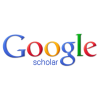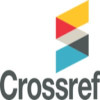Research Article
Issue Editorial Board
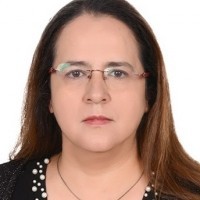
Menekşe Seden Tapan-Broutin, 1975 yılında Ankara’da doğmuştur. İlk, orta ve lise öğrenimini Ankara Özel Tevfik Fikret Okullarında tamamlamıştır. 1998 yılında Dokuz Eylül Üniversitesi Fen-Edebiyat Fakültesi Matematik (İngilizce) Bölümünden mezun olmuş ve Milli Eğitim Bakanlığına bağlı okullarda öğretmen olarak görev yapmıştır.
2000 yılında Milli Eğitim Bakanlığı bursuyla lisansüstü eğitim için Fransa'ya gitmiş, 2002 yılında yüksek lisans ve 2006 yılında doktora öğrenimlerini Joseph Fourier (Grenoble I) Üniversitesi'nde tamamlamıştır. Doktora çalışmaları, dinamik geometri yazılımları ve matematik eğitimi alanlarında yoğunlaşmıştır.
2007 yılında Bursa Uludağ Üniversitesi Eğitim Fakültesi Matematik Eğitimi Anabilim Dalında öğretim üyesi olarak göreve başlamış olup, bu üniversitede profesör olarak görevine devam etmektedir. Araştırma alanları arasında bilgisayar destekli matematik öğretimi, matematik öğretiminde teknoloji ve araç kullanımı, geometri öğretimi, eğitimde yapay zekâ ve öğretmen eğitimi yer almaktadır.
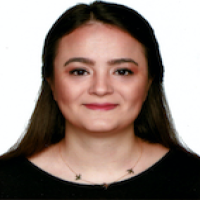
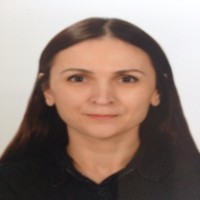
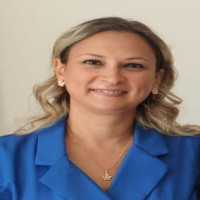

Fatih Erdoğdu is a PhD member of Computer Technologies at Zonguldak Bülent Ecevit University. He graduated from Middle East Technical University. He graduated from Computer Education and Instructional Technology at Gazi University with the degree of master in 2015. Moreover, he graduated at Computer Education and Instructional Technology at Karadeniz Technical University with the degree of PhD. His academic interest areas are humor, open and distance learning, e-learning.
Issue Reviewers
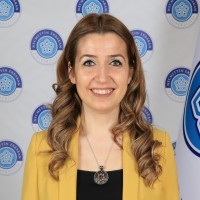
Necmettin Erbakan Üniversitesi Okul Öncesi Eğitimi Anabilim Dalı öğretim üyesi olan Doç. Dr. Bengü Türkoğlu, Selçuklu Kognitif Oyunlar Laboratuvarı (SEKOL) direktörüdür. Dr. Türkoğlu lisans ve yüksek lisans eğitimini Selçuk Üniversitesi İngilizce Öğretmenliği bölümünde, doktora eğitimini ise 2016 yılında aynı üniversitenin Çocuk Gelişimi ve Eğitimi bölümünde tamamladı. Millî Eğitim Bakanlığına bağlı eğitim kurumlarında farklı eğitim kademelerinde uzman öğretmen olarak görev yaptı. 2020 yılında Okul Öncesi Eğitimi alanında doçent unvanını aldı.
Dr. Türkoğlu, çalışma alanını “oyun temelli öğrenme”, “kognitif oyunlar”, “eğitsel oyunlar” ve “gelişim alanları üzerinde kognitif oyunların etkileri” olarak tanımlamaktadır. Lisans ve yüksek lisans düzeyinde “Erken Çocukluk Döneminde Kognitif (Bilişsel) Oyun Temelli Öğrenme”, “Erken Çocukluk Döneminde Geleneksel Çocuk Oyunları”, “Drama”, “Erken Çocuklukta Çocuğu Tanıma ve Değerlendirme”, “Dezavantajlı ve Risk Altındaki Çocuklara Müdahale Programları” gibi derslerin yürütücüsüdür. Tübitak ve kamu kuruluşlarıyla gerçekleştirilen farklı projelerde koordinatör ve araştırmacı olarak görev alan Dr. Türkoğlu, bilişsel oyunların farklı eğitim kademelerindeki çocukların farklı gelişim alanları üzerindeki etkilerini incelemektedir. Özellikle bilişsel ve sosyal gelişim perspektifinden oyun temalı makaleler yazmış, bildirileriyle birçok uluslararası kongre, sempozyum ve konferanslarda görev almış; oyun temelli öğrenme konusunda öğrenci, öğretmen, yönetici ve anne-babalara yönelik çok sayıda seminer ve atölye çalışmaları yürütmüştür.


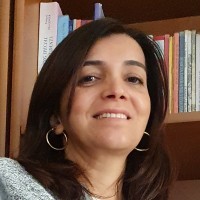

-


Doç. Dr. Hakan Kör:
Doğum Yeri ve Yılı: 1981, İskilip
Eğitim:
Anadolu Üniversitesi, Porsuk MYO, Bilgisayar Programcılığı (2002)
Balıkesir Üniversitesi, Necatibey Eğitim Fakültesi, Bilgisayar ve Öğretim Teknolojileri (2006)
Kırıkkale Üniversitesi Fen Bilimleri Enstitüsü, Bilgisayar Mühendisliği Yüksek Lisans (2013)
Kırıkkale Üniversitesi Fen Bilimleri Enstitüsü, Bilgisayar Mühendisliği Doktora (2017)
Kariyer:
MEB Bilişim Teknolojileri Öğretmenliği (2006-2009)
Hitit Üniversitesi Sungurlu MYO Öğretim Görevlisi (2009'dan itibaren)
Sungurlu MYO Müdür Yardımcılığı (2012-2014)
Hitit Üniversitesi Uzaktan Eğitim Merkezi Müdür Yardımcılığı (2014-2016)
Şu anda Hitit Üniversitesi Mühendislik Fakültesi Bilgisayar Mühendisliği Bölümü'nde Doçent olarak görev yapmakta.
Çalışma Alanları:
Veri Madenciliği
Karar Ağaçları Algoritmaları
Büyük Veri ve Analizi
Bulut Bilişim
Yaşam Boyu Öğrenme
Liderlik
Uzaktan Eğitim
Diğer Bilgiler:
İngilizce biliyor
Evli ve iki çocuk babası
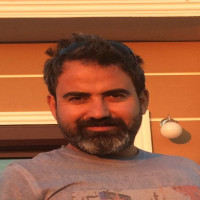


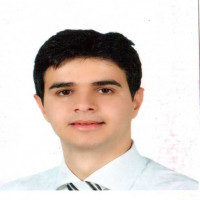

Onur Zahal, 1985 yılında Hatay'da doğmuştur. İlkokulu, Derme İlkokulunda; ortaokul ve liseyi ise Malatya Anadolu Lisesinde tamamlamıştır. 2007 yılında İnönü Üniversitesi Müzik Öğretmenliği Programından mezun olan Zahal, MEB bünyesinde Malatya Yazıhan Lisesi'nde müzik öğretmeni olarak göreve başlamıştır. 2010 yılında aynı üniversitenin yüksek lisans programını, Doç. Server Acim danışmalığında tamamlamıştır. Aynı yıl Gaziosmanpaşa Üniversitesi Müzik Eğitimi Anabilim Dalında araştırma görevlisi olarak göreve başlamıştır. 2014 yılında İnönü Üniv. Müzik Eğitimi Anabilim Dalında, Prof. Dr. Turan Sağer danışmanlığında, "Özel yetenek sınavına giren adayların öğrenme stilleri ve bilişsel esneklik düzeyleri arasındaki ilişki" başlıklı tezi ile tamamlayarak doktor unvanı almıştır. Sırasıyla Gaziosmanpaşa Üniversitesi ve İnönü Üniversitesinde doktor öğretim üyeliği görevlerinde bulunmuştur. 2017 yılında ÜAK'ın yazılı ve sözlü sınavlarında başarılı bulunarak, "Müzik Eğitimi" alanında doçent olmuştur. 2023 yılında İnönü Üniversitesi Müzik Eğitimi Anabilim Dalına Profesör olarak atanmıştır. Halihazırda aynı programda görevine devam etmektedir.
Fakülte ve enstitü dergilerinde editör ve editör yardımcılığı görevlerinde bulunmuştur. Birçok doktora ve yüksek lisans tez danışmanlığı yapmıştır. Mütemadiyen sanatsal etkinliklerde icracı olarak görev almaktadır. İyi düzeyde İngilizce bilen Zahal, ağırlıklı olarak çalgı eğitimi, uzaktan müzik eğitimi, müzik eğitiminde araştırma yöntemleri ve tarihsel müzikoloji alanlarında çalışmalarına devam etmektedir.









https://www.ilyasyazar.com/ftp/yazar_tr.pdf
https://www.ilyasyazar.com/ftp/yazar_en.pdf
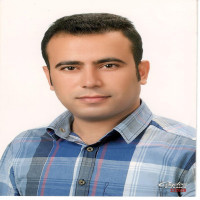

Yüksek lisans ve doktorasını Orta Doğu Teknik Üniversitesi Okul Öncesi Eğitimi Anabilim Dalı’nda yapmıştır. Doktora eğitimi sırasında Queensland Teknoloji Üniversitesi’nde misafir araştırmacı olarak erken çocuklukta sürdürülebilirlik için eğitim üzerine çeşitli çalışmalar yürütmüş ve seminerler vermiştir. Halen Kırşehir Ahi Evran Üniversitesi Okul Öncesi Eğitimi Anabilim Dalı’nda çalışmaktadır. 2020 yılından itibaren European Early Childhood Education Research Association’a bağlı Erken Çocukluk Eğitiminde Sürdürülebilirlik özel araştırma grubu yöneticilerinden biridir. Bu araştırma grubu bünyesinde sürdürülebilirlik ve hizmet öncesi ve hizmet içi öğretmen eğitimi konusunda uluslararası bir dergide editörlük, uluslararası bir kitapta editörlük, sempozyumlar ve çalıştaylar düzenleme ve yürütme görevlerinde bulunmaktadır. Başlıca araştırma alanları sürdürülebilirlik için eğitim, yaratıcı drama, sanat eğitimi, eleştirel medya okuryazarlığı, ilkokula hazırbulunuşluk ve hizmet öncesi ve hizmet içi öğretmen eğitimidir.
Aim & Scope
Journal of Uludag University Faculty of Education (JUUFE) is an open access (CC-BY-NC), double blind peer-reviewed, scientific journal. First published in 1986, it is one of Turkey's well-established educational journals. It was published in paper form between 1986-1998, and in paper and electronic form between 1999-2018. As of 2019, it publishes in electronic form only with the e-ISSN number 2667-6788. Our journal was published once a year until 2004 and twice a year between 2014-2019. As of 2020, it continues to be published three times a year (April, August and December).
JUUFE is hosted by the DergiPark online journal platform and follows the editorial workflow management system provided. JUUFE adopts a double-blind peer review policy. New submissions are first checked for technical issues and are then sent to the relevant field editor, who appoints two peer reviewers from the pool of field experts. The article evaluation process can take 2-4 months.
JUUFE envisions three major aims:
1. To disseminate knowledge that is based on robust theoretical principles and sound methodological frameworks.
2. To address significant educational issues on a national and international level.
3. To inform national and international educational policies.
Please take into consideration the following points when determining the scope of your submission.
JUUFE:
1. considers for publication articles which encompass the themes of education, learning, teaching, school, student and teacher.
2. Gives priority to empirical research articles.
3. Gives priority to submissions that include advanced statistical procedures.
4. Gives priority to qualitative research studies that report the data analyses in detail.
5. Expects mixed-method studies to provide a detailed explanation of how the chosen design is appropriate for the theoretical framework.
6. Requires submissions derived from Doctoral and Masters dissertations to include the findings related to the main hypotheses.
7. Requires submissions reporting instrument development and adaptation studies to include reports of criterion validity, convergent and divergent validity, and measurement invariance in addition to structural validity.
8. JUUFE does not consider for publication the following submissions:
o Studies that deal only with the perceptions or opinions of students, candidate teachers, or teachers.
o Studies that deal with the comparison of data with demographic or categorical variables (e.g., grade level, school type, department, gender)obtained from the demographic information section of a data collection instrument,
o Studies that examine only the general characteristics of coursebooks,
o Literature reviews that do not deal with original topics in priority areas, or are not prepared in accordance with generally accepted templates in the international literature.
Author Guidelines
JUUFE considers for publication original research studies that have not been previously published. Submissions to JUUFE should be written using MS Word. The working document and author information page should be prepared in accordance with the writing rules by using the templates provided. Submissions that are not prepared in accordance with the template may be rejected during the initial check.
Download the writing rules here.
Download the author information page (title page) template here.
Download the working document template here.
Please pay attention to the following points when preparing your submission:
1. Ethics Committee: According to TRDizin’s 2020 criteria, approval from a recognized research ethics committee must be obtained for studies that use data collected from human participants. In addition, information about the ethics committee permission obtained (name of the committee, evaluation date, issue number of the ethical permission document) should be included in the "Method" section and title page of the study. In all submissions, ethics committee permission information must be fully stated by the authors.
2. Publication Language: Submissions to JUUFE can be in Turkish and English.
As of 2026, the articles in our journal will be published in both Turkish and English. Therefore, Turkish articles accepted for publication for the relevant issue will need to be translated into English. Articles written in English will not need to be translated into Turkish, but authors can do so if they wish.
If the publication language of the studies to be published in 2024 and 2025 is Turkish, it is obligatory to add both a short and an extended abstract in English. If the publication language is English, it is obligatory to add both a short and extended abstract in Turkish.
3. Plagiarism Scanning: A similarity report must be uploaded by the author when making a submission. The similarity report can be obtained from programs such as Turnitin© or iThenticate©. In addition, a new scan can be requested by intihal.net© in the DergiPark system during the submission process. Articles with a similarity rate of more than 20% will not be processed and will be returned to the author by the editor.
General Rules
• Manuscripts should be compliant with APA Style, 7th Edition.
• Manuscripts may be written in Turkish or English.
• Manuscripts that are not prepared according to the journal guidelines will not be considered.
• Editors and referees may make changes and corrections that they deem appropriate in the submitted manuscripts.
• A structured, extended abstract of 1,500-2,000 words should be provided in English for Turkish manuscripts, and in Turkish for English manuscripts. The extended abstract should have the following sub-headings: "introduction", "method", "results", "conclusion, suggestion and recommendations".
• English translations should be done by experts and checked for linguistic accuracy. Turkish manuscripts should also be checked for grammar, spelling, and discourse conventions.
• The word limit of the manuscript is 10,000 (abstract, main text and bibliography).
Ethical Principles and Publication Policy
ETHICAL PRINCIPLES AND PUBLICATION POLICIES
The publication of an article in a peer-reviewed journal is an essential building block in the development of a coherent and respected network of knowledge. It is a direct reflection of the quality of the work of the authors and the institutions that support them. Peer-reviewed articles support and embody the scientific method. Therefore, it is of the utmost importance that all parties included in the publication process (authors, readers and researchers, publisher, reviewers and editors) comply with the standards of ethical considerations. JUUFE expects all parties to hold the following ethical responsibilities.
The following ethical duties and responsibilities have been prepared in the light of the guide and policies made by the Committee on Publication Ethics (COPE).
Publication Ethics and Unethical Practices Statement
JUUFE does not discriminate between authors, editors, or referees based on personal characteristics or identity. On the contrary, it aims to accommodate diversity and promotes equity at every stage of evaluation and publication.
If the editorial board of JUUFE suspects or obtains evidence of a violation of publication ethics, it will intervene appropriately in accordance with the allegations. Thus, it may reject a submission during the evaluation and publication process. Regarding articles that have been published, JUUFE may publish corrections, clarifications, and/or apologies, or even withdraw an article from publication.
JUUFE does not tolerate plagiarism or self-plagiarism. It has the right to check all submissions using tools such as Turnitin©, intihal.net©, or iThenticate©.Submissions with a maximum similarity rate of 20% will be considered. Except in exceptional cases, this limit cannot be exceeded and studies with a higher similarity rate than that specified here will be rejected.
The editor assigned for the evaluation of the submissions examines the study and the plagiarism report during the initial check stage and, if necessary, performs a second plagiarism analysis with one of the abovementioned software tools.
If the similarity rate is within the range specified by the journal (maximum 20%) and the submission does not raise doubts in terms of publication ethics, the submission is examined by the editorial board in terms of its suitability for the scope of the journal and the journal's writing rules. Submissions that are not suitable for the scope of the journal are rejected by the editorial board. Only those that do not comply with the journal’s writing rules are sent back to the authors for correction. After making the relevant corrections, the authors upload the submission to the Dergipark system. Once the necessary revisions have been made, the double-blind peer review process begins.
JUUFE does not tolerate inappropriate behavior or correspondence towards its editorial team. Should such an instance arise, it reserves the right to take action in a variety of ways, including the withdrawal of a submission from consideration for publication, to protect its editorial team.
Duties of Authors
Article submissions to JUUFE are conducted through the DergiPark online journal management system. Submissions via email are not accepted.
Authors wishing to submit their work to JUUFE should upload all the necessary submission documents in the required format (manuscript without author details, cover page with author details, similarity report, signed permission granted by the relevant ethical research committee, article copyright form, article submission form). The review process will not be started in the event of missing documents.
Authors are expected to hold to the ethical duties and responsibilities as presented in the Responsible research publication: international standards for authors guidelines published via open access by COPE.
❖ Authors should not have submitted their work to more than one journal at the same time. Each submission should be made following the completion of the previous one. A study published in another journal cannot be sent to JUUFE for consideration for publication.
❖ The research being reported should have been conducted in an ethical and responsible manner and should comply with all relevant legislation.
❖ The work submitted by the author(s) is expected to be original. If the author(s) benefit from other published studies, they must cite these studies completely and accurately.
❖ Researchers should present their results clearly, honestly, and without fabrication, falsification or inappropriate data manipulation
❖ Researchers should strive to describe their methods clearly and unambiguously so that their findings can be confirmed by others.
❖ Researchers should adhere to publication requirements that submitted work is original, is not plagiarised, and has not been published elsewhere.
❖ Authors should take collective responsibility for submitted and published work.
❖ The authorship of research publications should accurately reflect individuals’ contributions to the work and its reporting.
❖ Individıals who do not contribute intellectually to the study should not be specified as authors.
❖ All studies submitted for publication should disclose any conflict of interest, and/or any situation and relationship that may constitute a conflict of interest.
❖ The author(s) must document that they have the rights to use the data used, the necessary permissions for the research/analysis, or the consent of the participants.
❖ In the event that the author(s) notices a mistake or error in their published, pre-published, or under review work, they have an obligation to cooperate with the editor in informing, correcting or withdrawing the submission. Note that the author(s) can request correction of a published article only within five days after it has been published. Otherwise, they will have to write an erratum, which will be published in the following issue. Withdrawal is possible at any stage prior to publication.
❖ After a study is accepted for publication, only Turkish/English language and spelling rules should be edited. New findings and/or new interpretations, etc., should not be included, and new sources should not be cited. If files are uploaded by the authors to the studies accepted for publication and during the publication process without the knowledge of the editorial board, these files will not be taken into consideration.
❖ Authors are strongly advised to ensure the author group, the Corresponding Author, and the order of authors are all correct at submission. Adding and/or deleting authors during the revision stages is generally not permitted, but in some cases may be warranted. Reasons for changes in authorship should be explained in detail. Please note that changes to authorship cannot be made after acceptance of a manuscript.
Funding sources and relevant conflicts of interest should be disclosed.
Duties of the Editors
The Editor of the JUUFE is expected to hold the ethical duties and responsibilities as presented in "COPE Code of Conduct and Best Practice Guidelines for Journal Editors" ve "COPE Best Practice Guidelines for Journal Editors".
General duties and responsibilities of editors
Editors should be accountable for everything published in their journals. Editors should
❖ strive to meet the needs of readers and authors;
❖ strive to constantly improve their journal;
❖ have processes in place to assure the quality of the material they publish;
❖ champion freedom of expression;
❖ maintain the integrity of the academic record;
❖ preclude business needs from compromising intellectual and ethical standards;
❖ always be willing to publish corrections, clarifications, retractions and apologies when needed.
Relations with readers
❖ Readers should be informed about who has funded research or other scholarly work and whether the funders had any role in the research and its publication and, if so, what this was.
Relations with authors
❖ Editors’ decisions to accept or reject a paper for publication should be based on the paper’s importance, originality and clarity, and the study’s validity and its relevance to the remit of the journal.
❖ Editors should not reverse decisions to accept submissions unless serious problems are identified with the submission.
❖ New editors should not overturn decisions to publish submissions made by the previous editor unless serious problems are identified.
❖ A description of peer review processes should be published, and editors should be ready to justify any important deviation from the described processes.
❖ Journals should have a declared mechanism for authors to appeal against editorial decisions.
❖ Editors should publish guidance to authors on everything that is expected of them. This guidance should be regularly updated and should refer or link to this code.
❖ Editors should provide guidance about criteria for authorship and/or who should be listed as a contributor following the standards within the relevant field.
Relations with reviewers
❖ Editors should provide guidance to reviewers on everything that is expected of them including the need to handle submitted material in confidence. This guidance should be regularly updated and should refer or link to this code.
❖ Editors should require reviewers to disclose any potential competing interests before agreeing to review a submission.
❖ Editors should have systems to ensure that peer reviewers’ identities are protected unless they use an open review system that is declared to authors and reviewers.
Relations with editorial board members
❖ Editors should provide new editorial board members with guidelines on everything that is expected of them and should keep existing members updated on new policies and developments.
Relations with journal owners and publishers
❖ The relationship of editors to publishers and owners is often complex but should be based firmly on the principle of editorial independence.
❖ Editors should make decisions on which articles to publish based on quality and suitability for the journal and without interference from the journal owner/publisher.om the journal owner/publisher.
❖ Editors should have a written contract(s) setting out their relationship with the journal’s owner and/or publisher.
❖ The terms of this contract should be in line with the COPE Code of Conduct for Publishers
Editorial and peer review processes
❖ Editors should strive to ensure that peer review at their journal is fair, unbiased and timely.
❖ Editors should have systems to ensure that material submitted to their journal remains confidential while under review.
❖ Editors should take all reasonable steps to ensure the quality of the material they publish, recognising that journals and sections within journals will have different aims and standards.
Protecting individual data
❖ Editors should always protect the confidentiality of individual information obtained in the course of research or professional interactions.
Encouraging ethical research (e.g. research involving humans)
❖ Editors should endeavour to ensure that research they publish was carried out according to the relevant internationally accepted guidelines.
❖ Editors should seek assurances that all research has been approved by an appropriate body (e.g. research ethics committee, institutional review board) where one exists. However, editors should recognise that such approval does not guarantee that the research is ethical.
Dealing with possible misconduct
❖ Editors have a duty to act if they suspect misconduct or if an allegation of misconduct is brought to them. This duty extends to both published and unpublished papers.
❖ Editors should first seek a response from those suspected of misconduct. If they are not satisfied with the response, they should ask the relevant employers, or institution, or some appropriate body (perhaps a regulatory body or national research integrity organization) to investigate.
❖ Editors should make all reasonable efforts to ensure that a proper investigation into alleged misconduct is conducted; if this does not happen, editors should make all reasonable attempts to persist in obtaining a resolution to the problem.
Ensuring the integrity of the academic record
❖ Errors, inaccurate or misleading statements must be corrected promptly and with due prominence.
Intellectual property
❖ Editors should be alert to intellectual property issues and handle potential breaches of intellectual property laws and conventions.
Encouraging debate
❖ Editors should encourage and be willing to consider cogent criticisms of work published in their journal.
❖ Authors of criticised material should be given the opportunity to respond.
❖ Studies reporting negative results should not be excluded.
Complaints
❖ Editors should respond promptly to complaints and should ensure there is a way for dissatisfied complainants to take complaints further.
Commercial considerations
❖ Commercial considerations should not affect editorial decisions.
Conflicts of interest
❖ Editors should manage their own conflicts of interest as well as those of their staff, authors, reviewers and editorial board members.
❖ Journals should have a declared process for handling submissions from the editors, employees or members of the editorial board to ensure unbiased review.
Duties of Section Editors
JUUFE adopts a double blind peer review policy. The submissions and review processes are conducted via the DergiPark electronic journal management system. Section editors manage the review process of the articles assigned to them and should guarantee an unbiased blind peer review.
The section editors of JUUFE are expected to hold the duties and responsibilities described in the "COPE Code of Conduct and Best Practice Guidelines for Journal Editors".
Section editors should:
❖ objectively evaluate a submission in terms of its contributions to the relevant scientific literature, the readers and the journal, as well as its accordance with scientific criteria
❖ appoint two peer reviewers from the related field and who hold at least a doctoral degree, taking care to ensure variety in affiliation.
❖ guarantee the anonymity of both parties during the peer review process..
❖ ensure that the principle of freedom of thought is upheld and intellectual property rights are protected during the peer review process.
❖ follow up and complete the review process in a timely manner.
❖ offer constructive and directive advice to increase the quality of the submission during the peer review process. In the event of a rejection, the section editor should explain the justifications for the decision.
Duties of Peer Reviewers
To guarantee an independent and objective review, JUUFE employs a double blind peer review process. This process is managed through the DergiPark electronic journal management system, and communication between peer reviewers and authors is mediated by the relevant section editor. In this respect, Uludağ Universit Faculty of Education Journal expects peer reviewers to hold to the ethical duties and responsibilities as presented by COPE in the Ethical Guidelines for Peer Reviewers.
Peer reviewers should:
❖ only agree to review manuscripts for which they have the subject expertise required to carry out a proper assessment and which they can assess in a timely manner
❖ respect the confidentiality of peer review and not reveal any details of a manuscript or its review, during or after the peer-review process, beyond those that are released by the journal
❖ not use information obtained during the peer review process for their own or any other person’s or organization’s advantage, or to disadvantage or discredit others
❖ declare all potential conflicting interests, seeking advice from the journal if they are unsure whether something constitutes a relevant interest
❖ not allow their reviews to be influenced by the origins of a manuscript, by the nationality, religious or political beliefs, gender or other characteristics of the authors, or by commercial considerations
❖ be objective and constructive in their reviews, refraining from being hostile or inflammatory and from making libellous or derogatory personal comments
❖ acknowledge that peer review is largely a reciprocal endeavour and undertake to carry out their fair share of reviewing and in a timely manner
❖ provide journals with personal and professional information that is accurate and a true representation of their expertise
❖ recognize that impersonation of another individual during the review process is considered serious misconduct.
Duties of the Publisher
Bursa Uludağ University, the publisher of Uludağ UniversityFaculty of Education Journal is a non-profit publicly-owned university. In accordance with its founding philosophy, Bursa Uludağ University publishes the Uludağ University Faculty of Education Journal with the aim of publishing and disseminating original and current scientific research on teaching and education at international standards. Bursa Uludağ University is aware that it must observe the ethical responsibilities below.
❖ The editor is responsible for processing all the manuscripts submitted to Uludağ University Faculty of Education Journal.
❖ The editor ensures independent decisions.
❖ The Journal of Uludağ University Faculty of Education reserves all rights of ownership and copyright and is responsible for keeping records of every publication.
❖ The editor is responsible for preventing any kind of scientific misconduct, predatory behaviour, and plagiarism.
Copyright and Open Access Policy
JUUFE is a completely open access journal and provides free and unlimited access to the articles it publishes without any restrictions, subscriptions or requirements.
All articles published on the website of JUUFE are licensed under a Creative Commons Attribution-NonCommercial-ShareAlike 4.0 International License (CC-BY-NC-SA). Due to its open access policy, JUUFE does not allow the articles it publishes to be shared commercially by others.
Authors agree to the requirements of the open access policy and the Creative Commons Attribution-NonCommercial-ShareAlike 4.0 International license (CC-BY-NC-SA). An open access policy also helps to disseminate information as widely as possible. Based on its open access policy, the journal allows readers to read, download, copy, distribute, print, search, or link to the full texts of its articles, and allows readers to use them for any other lawful purpose.
Manuscripts submitted to JUUFE for publication must be original and must not have been previously published or sent elsewhere for publication.
Authors are responsible for the content of the articles published in JUUFE. It confirms that the content of its articles does not bind the owner, editor, associate editors or advisory board members of JUUFE.
The authors also grant non-exclusive initial publication rights to JUUFE to publish their articles.
If You Encounter an Unethical Situation
If you encounter any unethical behavior or content in JUUFE other than the ethical responsibilities mentioned above, please report it to the Editor-in-Chief via e-mail to uuefad@gmail.com or via the Dergipark system.
Authors have the right to make complaints directly to the Editor-in-Chief about any subject or stage of the evaluation or publication, including peer bias and harmful competitive actions of reviewers. If this is necessary, the author(s) should include details of their complaint and provide evidence for the dispute to be resolved quickly and effectively.
Price Policy
The Journal of Uludag University Faculty of Education DOES NOT charge fees for article submission, processing, or publication.
Indexes
Journal Boards
Editor in Chief
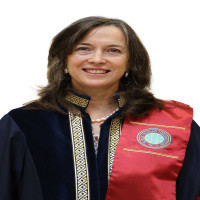
Dr. Amanda Yeşilbursa, 30 yıldır İngilizce dil öğretimi ve öğretmen eğitimi alanında çalışmaktadır. Anaokulundan lisansüstüne kadar her yaştan ve seviyeden öğrenciye Tayvan, İngiltere ve Türkiye'de ders vermiştir. Gazi Üniversitesi, Ankara'dan ELT alanında lisansüstü derecelerini almıştır ve halen Bursa Uludağ Üniversitesi'nde tam profesör pozisyonundadır. Araştırma ilgi alanları arasında yansıtıcı uygulama, İngilizce dil öğretmeni eğitimi ve öğretmen bireysel farklılıkları yer almaktadır.
Assistant Editor
Alan Editörleri

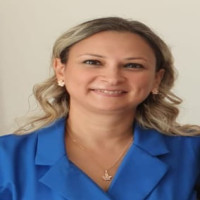
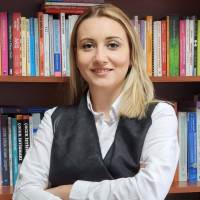

Fatih Erdoğdu is a PhD member of Computer Technologies at Zonguldak Bülent Ecevit University. He graduated from Middle East Technical University. He graduated from Computer Education and Instructional Technology at Gazi University with the degree of master in 2015. Moreover, he graduated at Computer Education and Instructional Technology at Karadeniz Technical University with the degree of PhD. His academic interest areas are humor, open and distance learning, e-learning.


Menekşe Seden Tapan-Broutin, 1975 yılında Ankara’da doğmuştur. İlk, orta ve lise öğrenimini Ankara Özel Tevfik Fikret Okullarında tamamlamıştır. 1998 yılında Dokuz Eylül Üniversitesi Fen-Edebiyat Fakültesi Matematik (İngilizce) Bölümünden mezun olmuş ve Milli Eğitim Bakanlığına bağlı okullarda öğretmen olarak görev yapmıştır.
2000 yılında Milli Eğitim Bakanlığı bursuyla lisansüstü eğitim için Fransa'ya gitmiş, 2002 yılında yüksek lisans ve 2006 yılında doktora öğrenimlerini Joseph Fourier (Grenoble I) Üniversitesi'nde tamamlamıştır. Doktora çalışmaları, dinamik geometri yazılımları ve matematik eğitimi alanlarında yoğunlaşmıştır.
2007 yılında Bursa Uludağ Üniversitesi Eğitim Fakültesi Matematik Eğitimi Anabilim Dalında öğretim üyesi olarak göreve başlamış olup, bu üniversitede profesör olarak görevine devam etmektedir. Araştırma alanları arasında bilgisayar destekli matematik öğretimi, matematik öğretiminde teknoloji ve araç kullanımı, geometri öğretimi, eğitimde yapay zekâ ve öğretmen eğitimi yer almaktadır.

Language Editors
Ebru Atak-Damar works as both a researcher and an instructor at the department of English Language Teaching in Bursa Uludag University, Turkey. She received her B.A. and M.A. in English Language Teaching from the same university and her PhD in English Language Teaching from COMU. Her PhD dissertation focused on foreign language prospective teachers' motivation to become teachers and beliefs about teaching and learning languages. As an instructor and a teacher trainer, she teaches courses on second/foreign language teaching and language teacher education. Her core areas of interests include language teaching methodology, classroom interaction, critical reflection and language teacher education/training, teacher beliefs and motivation.
Secretary

Page Setting Editor
Journal of Uludag University Faculty of Education ©2025 by Bursa Uludag University is licensed under CC BY-NC 4.0



